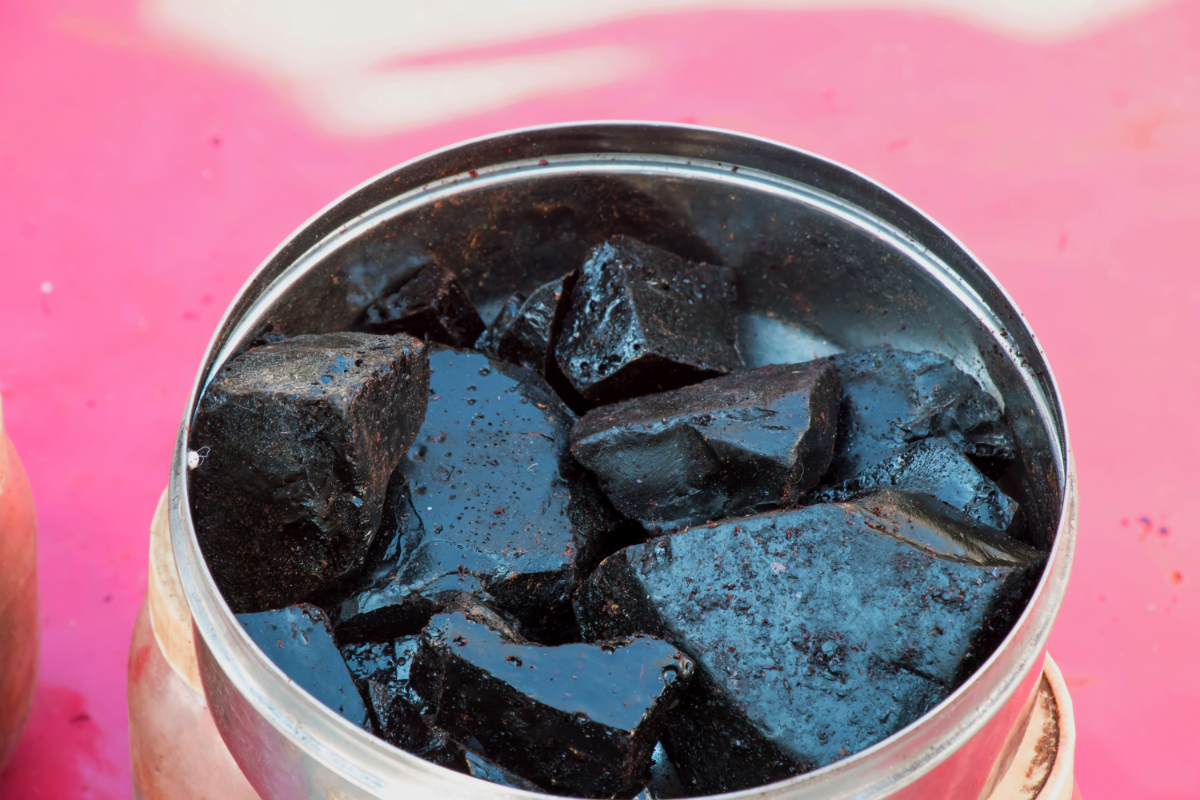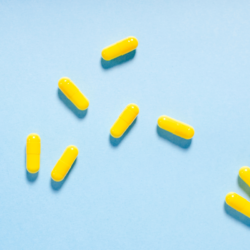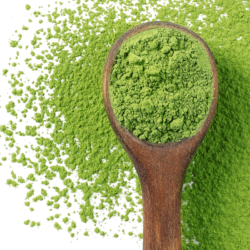Shilajit, a natural substance derived from the decomposition of plant matter in mountain rocks, is popular for its alleged health benefits. However, as with any supplement, it is crucial to examine the potential side effects. This article will detail the key points relating to the risks and precautions associated with using Shilajit.
What are the potential side effects of Shilajit?
Although Shilajit is widely recognised for its potential antioxidant benefits, its use is not without risks. It is crucial to understand the possible side effects in order to consume this supplement safely.
Heavy metal contamination
Unpurified Shilajit poses a major problem due to the potential presence of heavy metals such as lead,arsenic and mercury. These toxic substances can have serious consequences for human health, even in low concentrations. (1)
The presence of heavy metals in Shilajit can lead to a variety of medical problems. Among the most worrying effects are :
- Neurological disorders: Lead, in particular, is known to cause brain damage, cognitive disorders and disturbances of the central nervous system.
- Kidney and liver damage: Prolonged exposure to arsenic and mercury can damage the kidneys and liver, key organs in the elimination of toxins from the body.
- Increased risk of chronic diseases: An accumulation of heavy metals in the body can lead to cardiovascular disease, cancer and endocrine disorders.
Public health expert Dr Joshua L. Keller warns: “The absence of proper purification and rigorous control can turn a potentially beneficial product into a real health hazard In the absence of strict regulation, particularly by bodies such as the FDA, the onus is on the consumer to ensure the purity of the product.
That’s why it’s strongly recommended to choose brands that use independent laboratories to test their products. These third-party tests guarantee that Shilajit is free from dangerous contaminants, ensuring safer consumption.
Allergic reactions
Shilajit, although appreciated for its supposed benefits, can cause allergic reactions in some individuals. These reactions, although rare, can vary in intensity and represent a serious health risk. (2)
Symptoms of allergic reactions to Shilajit
People who are sensitive to certain biological or mineral components present in Shilajit may experience a range of allergic symptoms, including :
- Itching and skin rashes: Skin irritation, often in the form of redness or hives, is the most common manifestation.
- Breathing difficulties: In severe cases, the allergy may lead to angioedema or an asthma attack, requiring immediate medical attention.
- Swelling: Some users may experience swelling of the lips, tongue or face, signs of a systemic allergic reaction.
Risk factors
Allergic reactions are often exacerbated in people with :
- A particular sensitivity to certain minerals such as iron or magnesium.
- A pre-existing allergy to other supplements or natural products.
- A weakened immune system or a family history of allergies.
To minimise the risk of an allergic reaction, it is crucial to take certain precautions:
- Carry out a tolerance test: Before starting a course of treatment, apply a small amount of Shilajit to an area of skin to check for any skin reaction.
- Start with a low dose: As with any new supplement, it is advisable to start with a minimum dose (250 mg) in order to monitor any side effects.
- Consult a health professional: If you have a history of allergies or autoimmune diseases, medical advice is essential before taking Shilajit.
What should I do if I have an allergic reaction?
If allergic symptoms appear, it is vital to stop taking Shilajit immediately. In the case of severe reactions such as breathing difficulties or severe swelling, it is essential to consult a doctor or go to the emergency room immediately.
How should Shilajit be taken?
Preliminary studies show that Shilajit is generally well tolerated in doses ranging from 250 to 1,000 mg per day. However, it is advisable to start with a low dose to observe individual reactions.
Users should also bear in mind that food supplements are not regulated in the same way as medicines. The FDA (Food and Drug Administration) does not systematically supervise the safety and efficacy of these products before they are marketed.
Practical tip: Look for products with third-party certification to minimise the risk of contamination.
Sources
- Shilajit: A Natural Phytocomplex with Potential Procognitive Activity Carlos Carrasco-Gallardo, Leonardo Guzmán, Ricardo B. Maccioni First published: 23 February 2012
- Safety and Efficacy of Shilajit (Mumie, Moomiyo) Sidney J. StohsFirst published: 03 June 2013
- Neltner, T. J., Sahoo, P. K., Smith, R. W., Anders, J. P. V., Arnett, J. E., Schmidt, R. J., … Housh, T. J. (2022). Effects of 8 Weeks of Shilajit Supplementation on Serum Pro-c1α1, a Biomarker of Type 1 Collagen Synthesis: A Randomized Control Trial. Journal of Dietary Supplements, 21(1), 1-12. https://doi.org/10.1080/19390211.2022.2157522





